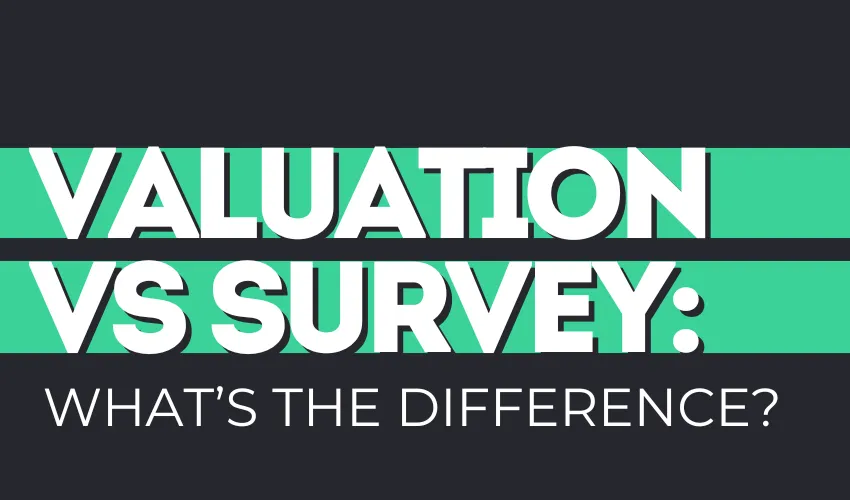
What's the difference between a valuation and a survey?
What’s the Difference Between a Valuation and a Survey?
If you’re buying a property, you might hear both terms – survey and valuation – thrown around during the process. While they might sound similar, they serve very different purposes, and understanding the distinction can save you from surprises further down the line.
Let’s break it down so you know exactly what to expect.
What Is a Mortgage Valuation?
A mortgage valuation is for the lender, not for you. Its sole purpose is to assess the property’s value to make sure it’s worth the amount you’re borrowing. Essentially, it helps the lender confirm that they’re making a safe investment by giving you the mortgage.
Can a Property Be Down-Valued?
Yes – and it’s more common than you might think. If the lender’s valuation comes back lower than the agreed purchase price, this is called a down-valuation. It means the lender thinks the property isn’t worth what you’ve agreed to pay.
What Happens If a Property Is Down-Valued?
A down-valuation can be frustrating, but it’s not the end of the world. You’ll need to either:
Renegotiate the price with the seller,
Cover the shortfall yourself, or
Look for a different lender (some may value the property differently).
Your broker can guide you through this process and help you explore your options.
What Is a Survey?
Unlike a valuation, a survey is for your peace of mind. It’s a detailed inspection of the property’s condition, identifying any issues like structural problems, damp, or maintenance costs. There are different levels of surveys available, depending on how thorough you want it to be.
The Costs
Mortgage valuations are often free or included in your mortgage deal, but surveys come with an additional cost. Depending on the type of survey (e.g., HomeBuyer’s Report or Building Survey), prices typically range from £500 to £1,500.
How Long Do They Both Take?
A valuation is usually quick, often between 15-30 minutes.
A survey is much more detailed and can tae several hours, depending on the level of survey and the size of the property.
Do I Need to Get a Survey?
Technically, no – but it’s highly recommended. A valuation alone won’t tell you about potential problems with the property. Investing in a survey could save you thousands by uncovering issues early, giving you the chance to renegotiate or walk away if needed.
Final Thought: Protecting Your Investment
While a valuation is essential for securing your mortgage, a survey is your opportunity to protect your investment and avoid costly surprises. Both play an important role in the home-buying process, so knowing the difference – and why each matters – can help you feel confident as you move forward.


